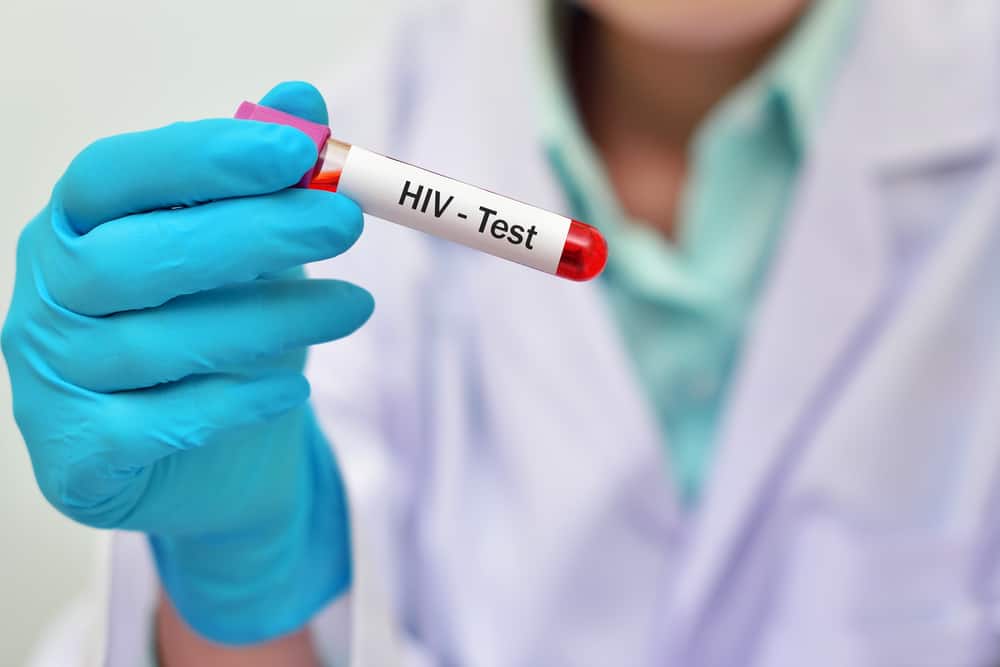Contents:
- Medical Video: Dermatology Treatments : How to Diagnose Skin Rashes
- Why does stress make it itchy?
- Get to know neurodermatitis, itchy and reddish skin conditions that are triggered by stress
- Signs and symptoms of neurodermatitis
- How to treat skin itching due to stress?
- When to see a doctor?
Medical Video: Dermatology Treatments : How to Diagnose Skin Rashes
Starting from problems at work, fighting with friends, or household problems, everyone sometimes feels stressed. Stress does not only make headaches and blood pressure rise. Some people can also experience itchy and reddened skin when they are severely stressed. Are you one of them? Why does stress make it itchy?
Why does stress make it itchy?
When you are stressed, the brain will react by releasing stress hormones adrenaline and cortisol, as well as other chemical compounds as the body's reaction to defend itself from threats. You will feel your heart rate increase, breathing faster, muscles tighten, and blood pressure soaring.
This stress reaction also affects your skin. There are many nerve endings connected to the skin so that if the central nervous system in the brain detects danger because of stress, your skin will also react. Some people can feel itchy while under stress because the brain also triggers the production of excessive sweating. If you are in a hot, humid environment, or the air circulation is not smooth, sweat will be trapped inside the skin layer and cannot evaporate. This then makes the skin become typical itching prickly heat.
In addition, stress makes itchy because the body produces hormones that can trigger skin diseases that you have already suffered and made worse. Some people who have psoriasis, eczema, biduran, are prone to relapse of symptoms when under stress.
Get to know neurodermatitis, itchy and reddish skin conditions that are triggered by stress
If you do tend to experience hives, especially when under stress, this may be a sign of neurodermatitis. Neurodermatitis is a skin itchy condition that is triggered by stress, and can appear on any part of the body. The itching that appears can be so strong that you have to continue scratching to reduce the itching.
In addition, neurodermatitis is often associated with other skin conditions, such as dry skin, eczema, or psoriasis. Women aged 30-50 years experience neurodermatitis more often than men.
Signs and symptoms of neurodermatitis
- Itching is only in certain areas (arms, face, head, shoulders, stomach, back thighs, wrists, groin, buttocks) or the entire body feels itchy
- Rough or scaly skin texture on the area of the skin that feels itchy
- Rough skin surface, uneven wavy, red or darker than your other skin
Itching due to neurodermatitis can arise. Some people feel most itchy while relaxing or during sleep. When you can overcome the stress and move on, the itching is gone. Even when stress has subsided though, some people can develop the habit of scratching unconsciously even though it's not itchy. This is referred to as psychogenic itching.
How to treat skin itching due to stress?
- Does not scratch the itchy area of the skin. The more you scratch, the more itchy. Keep finger nails short and apply cold ointment to reduce the itching.
- Using a moisturizer to keep the skin dry, which can aggravate itching
- Steroid creams can help soothe inflammation and itching. In more severe cases, a doctor should be consulted to get a higher steroid dose (only by prescription).
When to see a doctor?
You need to see a doctor if:
- You find yourself scratching the same part of the skin repeatedly.
- Itching disturbs your sleep or daily activities.
- Your skin becomes irritated or you see signs of infection.












